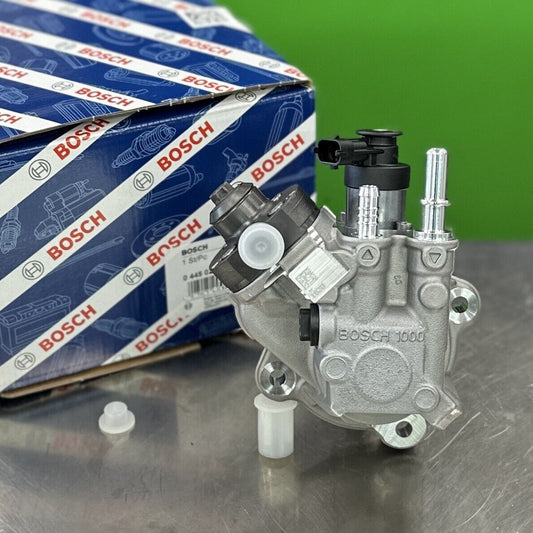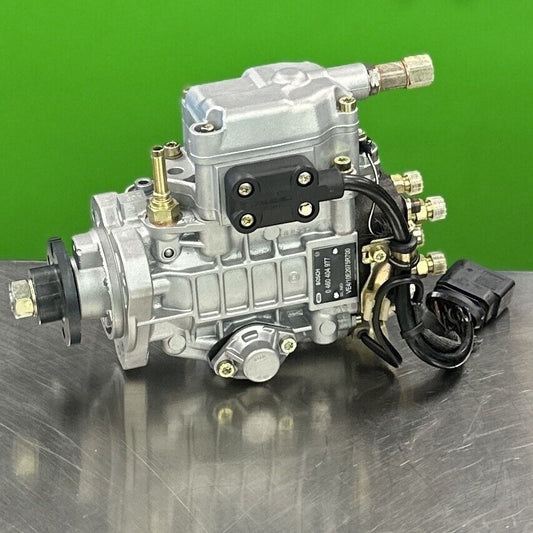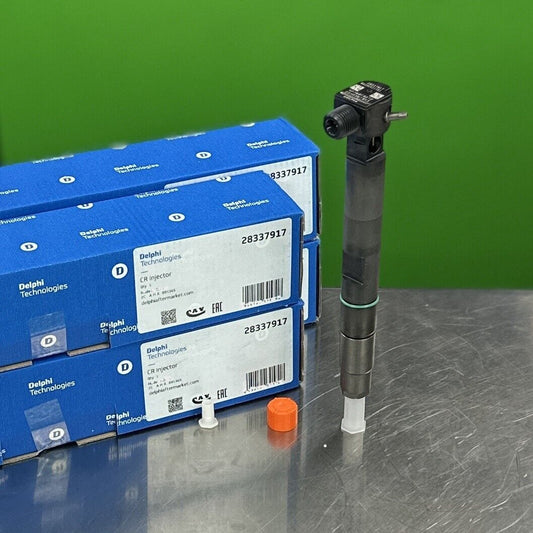Detroit S60 12.7L BorgWarner Turbo Troubleshooting: Diagnosing and Solving Common Problems
This article delves into the world of troubleshooting the Detroit S60 12.7L BorgWarner turbo system, aiming to identify and resolve common issues that may hinder its optimal performance and efficiency. By understanding the intricacies of this turbo system, you can effectively diagnose and solve problems, ensuring that your vehicle operates at its best.
Understanding the Detroit S60 12.7L BorgWarner Turbo System
When it comes to understanding the Detroit S60 12.7L BorgWarner Turbo System, it's like unraveling the mysteries of a complex machine that powers up your vehicle with a surge of energy. Imagine this turbo system as the heart of your engine, pumping power and efficiency to keep everything running smoothly on the road. To break it down, let's dive into the components that make up this powerhouse and how they work together seamlessly.
Picture a turbo system as a dynamic duo consisting of the turbine and compressor. The turbine side harnesses the exhaust gases from the engine to spin a shaft, while the compressor side draws in fresh air, compresses it, and sends it back into the engine at a higher pressure. This process, known as forced induction, boosts the engine's performance, delivering more power without increasing its size.
Within the Detroit S60 12.7L BorgWarner Turbo System, precision engineering meets high-performance demands. The turbocharger is designed to withstand extreme conditions and deliver optimal performance under pressure. From the turbine housing to the wastegate, each component plays a crucial role in ensuring efficient combustion and power delivery.
As the turbo system operates, it relies on a delicate balance of airflow, fuel mixture, and exhaust gases to generate power. Any disruption in this harmony can lead to issues such as decreased performance, increased fuel consumption, or even engine damage. That's why understanding how the Detroit S60 12.7L BorgWarner Turbo System functions is key to diagnosing and resolving any potential problems that may arise.
Common Symptoms of Turbo Troubles
When it comes to the Detroit S60 12.7L BorgWarner turbo system, keeping an eye out for common symptoms can be the key to preventing major issues down the road. Let's dive into the telltale signs that indicate trouble brewing under the hood.
One of the most noticeable symptoms of turbo troubles is a sudden loss of power. If you find your vehicle struggling to accelerate or lacking the usual oomph, it could be a red flag signaling a problem with the turbocharger.
Experiencing excessive smoke emanating from your exhaust can also be a clear indicator of turbo issues. Different colored smoke, such as black, blue, or white, can point towards specific problems within the turbo system that require immediate attention.
Unusual noises coming from the engine area, especially during acceleration, can be another sign of trouble with the turbocharger. Whistling, screeching, or grinding sounds should never be ignored, as they could signify underlying issues affecting the turbo's performance.
It's crucial to pay attention to these symptoms and address them promptly to prevent further damage to the Detroit S60 12.7L BorgWarner turbo system. By staying vigilant and proactive, you can ensure that your turbocharger operates smoothly and efficiently, keeping your vehicle running at its best.
Boost Pressure Irregularities
Boost pressure irregularities in the Detroit S60 12.7L BorgWarner turbo system can be a frustrating issue that impacts performance. When your turbocharger is not delivering consistent boost pressure, it can lead to decreased power and efficiency. Let's delve into the common causes of boost pressure irregularities and how you can effectively address them to ensure your engine runs smoothly.
One of the primary reasons for fluctuating boost pressure is a leak in the intake system. Air leaks before the turbocharger can disrupt the pressure balance and result in inconsistent performance. Inspect the intake hoses, connections, and intercooler for any signs of damage or loose fittings. By fixing these leaks, you can restore proper airflow and stabilize boost pressure.
Another factor that can contribute to boost pressure irregularities is a faulty wastegate or wastegate actuator. The wastegate controls the amount of exhaust gas that bypasses the turbocharger, regulating boost pressure. If the wastegate is stuck open or closed, it can lead to fluctuations in pressure. Check the wastegate for proper operation and ensure that the actuator is functioning correctly.
Furthermore, a clogged air filter or restricted exhaust system can also impact boost pressure. A dirty air filter restricts airflow to the turbocharger, affecting its performance. Similarly, a blocked exhaust can create back pressure, leading to pressure irregularities. Regularly inspect and replace the air filter, and ensure the exhaust system is free from obstructions to maintain optimal boost pressure.
Additionally, issues with the turbocharger itself, such as worn-out compressor or turbine blades, can cause fluctuations in boost pressure. Over time, the internal components of the turbocharger can degrade, affecting its efficiency. If you suspect internal damage to the turbocharger, it may be necessary to rebuild or replace the unit to restore proper boost pressure.
Proper maintenance and regular inspections are crucial in preventing and addressing boost pressure irregularities in the Detroit S60 12.7L BorgWarner turbo system. By staying proactive and addressing issues promptly, you can ensure that your engine operates at peak performance levels. Remember, a well-maintained turbo system not only enhances power delivery but also improves fuel efficiency and overall driving experience.
Turbocharger Oil Leaks
Dealing with turbocharger oil leaks in the Detroit S60 12.7L BorgWarner system is crucial for maintaining optimal performance and preventing potential damage. When oil leaks occur, they can lead to a variety of issues, including decreased efficiency and potential engine damage. Understanding the causes and taking proactive steps to address oil leaks is essential for ensuring the longevity of your turbocharger system.
One common cause of turbocharger oil leaks is a damaged or worn-out seal. Over time, the seals in the turbocharger can deteriorate due to heat and pressure, leading to oil leakage. Regularly inspecting the seals for any signs of wear and tear can help identify potential issues early on and prevent leaks from occurring.
Another possible cause of oil leaks is excessive crankcase pressure. When the crankcase pressure is too high, it can push oil past the seals and gaskets, causing leaks in the turbocharger system. Checking and maintaining the crankcase ventilation system can help regulate pressure levels and prevent oil leaks from occurring.
Additionally, improper installation or loose fittings can also contribute to oil leaks in the turbocharger system. Ensuring that all components are properly installed and securely tightened can help prevent leaks and maintain the integrity of the system. Regularly inspecting the fittings and connections for any signs of looseness or damage is essential for preventing oil leaks.
When addressing turbocharger oil leaks, it is important to use high-quality replacement parts and follow proper installation procedures. Using substandard parts or improper installation techniques can lead to recurring leaks and further damage to the turbocharger system. Consulting with a professional mechanic or following manufacturer guidelines for replacements and repairs can help ensure the effectiveness of the solutions.
In conclusion, turbocharger oil leaks in the Detroit S60 12.7L BorgWarner system can be a significant issue if left unaddressed. By understanding the causes of oil leaks and taking proactive measures to prevent and resolve them, you can maintain the performance and efficiency of your turbocharger system. Regular maintenance, thorough inspections, and prompt repairs are key to ensuring the longevity and reliability of your Detroit S60 12.7L BorgWarner turbo system.
Diagnostic Steps and Maintenance Tips
When it comes to diagnosing and maintaining the Detroit S60 12.7L BorgWarner turbo system, following proper diagnostic steps and implementing effective maintenance tips is crucial. By taking proactive measures, you can ensure that your turbo system operates at its peak performance and longevity. Let's delve into some essential diagnostic steps and maintenance tips to keep your Detroit S60 12.7L BorgWarner turbo system in top condition.
One of the initial diagnostic steps is to conduct a thorough visual inspection of the turbocharger system. Check for any signs of leaks, damaged components, or loose connections. Inspecting the overall condition of the turbo system can help in identifying potential issues early on, preventing major problems down the line.
Next, it's essential to monitor the boost pressure levels of the Detroit S60 12.7L BorgWarner turbo system. Fluctuations in boost pressure can indicate underlying issues that need to be addressed promptly. Utilize diagnostic tools to measure and analyze the boost pressure readings accurately.
Regularly checking and replacing the air filter is another maintenance tip that can significantly impact the performance of the turbo system. A clogged or dirty air filter can restrict airflow, leading to reduced turbo efficiency. By ensuring a clean air filter, you can optimize the turbocharger's performance.
Additionally, paying attention to the turbocharger oil is crucial for maintaining the health of the system. Monitor the oil levels and quality regularly to prevent oil leaks and ensure proper lubrication of the turbo components. Regular oil changes and using high-quality oil can extend the lifespan of the turbocharger.
Implementing a scheduled maintenance routine is key to keeping the Detroit S60 12.7L BorgWarner turbo system in optimal condition. Create a maintenance schedule that includes tasks such as inspecting hoses, checking for leaks, and cleaning components. Consistent maintenance practices can help in preventing unexpected breakdowns and costly repairs.
Furthermore, staying informed about the manufacturer's recommended maintenance guidelines is essential. Refer to the Detroit S60 12.7L BorgWarner turbo system manual for specific maintenance instructions and intervals. Following the manufacturer's guidelines can help in maximizing the performance and longevity of the turbo system.
In conclusion, by following proper diagnostic steps and implementing effective maintenance tips, you can ensure that your Detroit S60 12.7L BorgWarner turbo system operates smoothly and efficiently. Regular maintenance, monitoring boost pressure, and conducting visual inspections are key practices to keep your turbo system in top shape. Remember, proactive maintenance is the key to preventing unexpected issues and maximizing the lifespan of your turbocharger.
Frequently Asked Questions
-
What are some common signs of turbocharger problems in the Detroit S60 12.7L BorgWarner system?
Common symptoms include loss of power, excessive smoke from the exhaust, and unusual noises during operation. These signs indicate potential issues with the turbocharger that need attention.
-
How can I address boost pressure irregularities in the Detroit S60 12.7L BorgWarner turbo system?
Boost pressure irregularities can be caused by various factors such as leaks, blockages, or malfunctioning components. It is essential to conduct a thorough inspection and follow the diagnostic steps outlined to identify and resolve the root cause effectively.
-
What maintenance tips can help prolong the life of the Detroit S60 12.7L BorgWarner turbo system?
Regularly checking for oil leaks, monitoring boost pressure levels, and ensuring proper lubrication are crucial maintenance practices. Following the recommended service intervals and using high-quality components can also contribute to the longevity of the turbo system.



